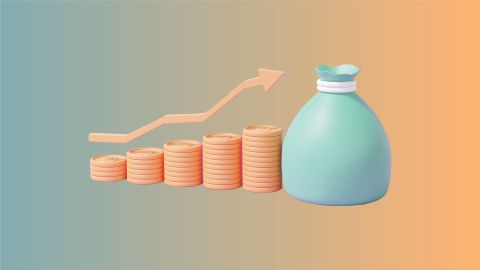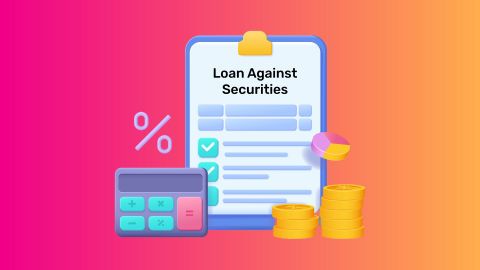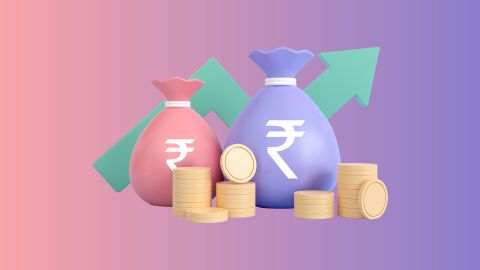When you need quick access to funds, whether for a major purchase, a medical emergency, or to seize an investment opportunity, there are many ways to borrow. But not all loans are created equal. One of the most flexible and widely used options is a secured loan, where you borrow money by pledging something you own as collateral. But before you choose this route, it’s important to understand how it works, what it involves, and whether it’s the right fit for your financial situation. From lower interest rates to higher loan amounts, secured loans offer some clear advantages, but they also come with a few risks. Let us break it all down in simple terms.
Need urgent funds without selling your investments? Leverage your shares or mutual funds to get instant liquidity without giving up ownership. Apply now for a loan against securities
What is a secured loan?
A secured loan is a type of borrowing where you pledge an asset, such as property, investments, or insurance policies, as collateral against the loan. By providing security, the lender is assured that if you fail to repay, they can recover their dues by liquidating the pledged asset.
Since the risk for lenders is lower, secured loans usually come with higher borrowing limits, longer repayment tenures, and relatively lower interest rates compared to unsecured loans. Common examples include loans against securities, home loans, loans against fixed deposits, and loans against insurance policies.
This type of loan is especially suitable for individuals looking for quick access to substantial funds while maintaining ownership of their assets, as the collateral remains in their name unless they default.
What is a secured loan?
Before you take a loan, it is essential to know exactly what you are signing up for, especially when your assets are on the line. A secured loan means you’re borrowing money by offering something valuable as collateral, like your home, car, or even your investments. In return, you may get better terms, such as lower interest rates or a higher loan amount. But here’s the flip side: if you can’t repay the loan, the lender can take that asset to recover their money. That’s why understanding how secured loans work is so important. It helps you weigh the pros and cons clearly, plan your finances better, and choose a loan that truly fits your needs.
How do secured loans work?
Let us break it down how exactly does a secured loan work?
- Pledging collateral: You offer an asset like property, a car, or investments, as a guarantee for the loan.
- Loan approval & disbursement: The lender checks the value of your collateral and then approves a loan amount based on it. Once approved, the funds are disbursed.
- Repayment: You repay the loan in regular instalments, along with interest.
- In case of default: If you miss repayments, the lender may sell the asset to recover the money. If the sale doesn't cover the full loan, you may need to pay the rest.
Own valuable shares or mutual funds? Turn them into a ready credit line and access funds whenever needed while still staying invested. Get started with a loan against mutual funds or shares
Key characteristics of secured loans
Here are some features that make secured loans stand out:
- Collateral required: You must provide an asset—like a property, vehicle, or investments—as security.
- Lower interest rates: Since the loan is backed by an asset, the lender faces less risk. This usually means lower interest rates for you.
- Higher borrowing limits: You can often borrow a larger amount, depending on the value of the asset.
- Longer repayment terms: Secured loans typically allow more time to repay the money.
- Risk of asset loss: If you default, the lender can take the pledged asset.






